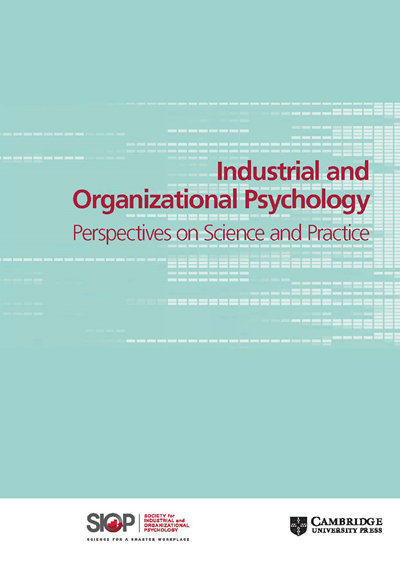Experience, empathy, and emotions: What our academic systems need to support (not just) women professors
IF 4.3
3区 心理学
Q1 PSYCHOLOGY, APPLIED
Industrial and Organizational Psychology-Perspectives on Science and Practice
Pub Date : 2023-05-09
DOI:10.1017/iop.2023.13
引用次数: 0
Abstract
The arguments in the focal article go like this: “ Women professors during pregnancy, postpartum, and caregiving phases face real struggles in their academic career and we have a moral obligation to help them succeed; otherwise, it could be very costly to our institutions. Department heads and other faculty members, take actions to support female caregivers. We will give you some sugges-tions. ” While I resonate with this message both on a personal and a professional level, I could not help but notice a fundamental assumption underlying this argument: that faculty members actively want to be good moral agents and want to help their colleagues and institutions. Supporting colleagues is not explicitly spelled out in faculty job descriptions, thus it would not be surprising if faculty members are indifferent to this ask, or even worse, push back when asked to do so. This is especially true if they do not sympathize with their colleagues ’ experience or if they are simply struggling with their own issues and needing help themselves. The authors essen-tially asked those that received their message to perform positive duties ( “ do good ” ) in addition to their negative duties ( “ do no harm ” ). Given how the former is much more controversial than the latter (Lichtenberg, 2010), I found myself questioning how likely it is that the authors ’ excellent recommendations would be turned into actions. To be honest, I was not optimistic. In this commentary, I present an experiential learning case to supplement the recommendations laid out by the authors and argue that academia needs more empathy and emotions to support (not just) women professors.经验、同理心和情感:我们的学术体系需要什么来支持(不仅仅是)女教授
焦点文章中的论点是这样的:“在怀孕、产后和护理阶段的女教授在她们的学术生涯中面临着真正的困难,我们有道义上的义务帮助她们成功;否则,我们的机构可能会付出非常高昂的代价。部门主管和其他教职员工,采取行动支持女性护理人员。我们会给你一些建议。”虽然我在个人和专业层面上都对这一信息产生了共鸣,但我不禁注意到这一论点背后的一个基本假设:教师们积极地希望成为良好的道德行为者,并希望帮助他们的同事和机构。教员的工作描述中没有明确规定要支持同事,因此,如果教员对这个要求漠不关心,或者更糟的是,当被要求这样做时,他们会拒绝,也就不足为奇了。如果他们不同情同事的经历,或者他们只是在自己的问题上挣扎,需要帮助,这一点尤其正确。作者主要是要求那些收到他们信息的人在消极的义务(“不伤害”)之外履行积极的义务(“做好事”)。鉴于前者比后者更具争议性(Lichtenberg, 2010),我发现自己质疑作者的优秀建议转化为行动的可能性有多大。老实说,我并不乐观。在这篇评论中,我提出了一个经验学习案例来补充作者提出的建议,并认为学术界需要更多的同理心和情感来支持(不仅仅是)女教授。
本文章由计算机程序翻译,如有差异,请以英文原文为准。
求助全文
约1分钟内获得全文
求助全文
来源期刊

Industrial and Organizational Psychology-Perspectives on Science and Practice
PSYCHOLOGY, APPLIED-
CiteScore
7.70
自引率
10.10%
发文量
85
期刊介绍:
Industrial and Organizational Psychology-Perspectives on Science and Practice is a peer-reviewed academic journal published on behalf of the Society for Industrial and Organizational Psychology. The journal focuses on interactive exchanges on topics of importance to the science and practice of the field. It features articles that present new ideas or different takes on existing ideas, stimulating dialogue about important issues in the field. Additionally, the journal is indexed and abstracted in Clarivate Analytics SSCI, Clarivate Analytics Web of Science, European Reference Index for the Humanities and Social Sciences (ERIH PLUS), ProQuest, PsycINFO, and Scopus.
 求助内容:
求助内容: 应助结果提醒方式:
应助结果提醒方式:


